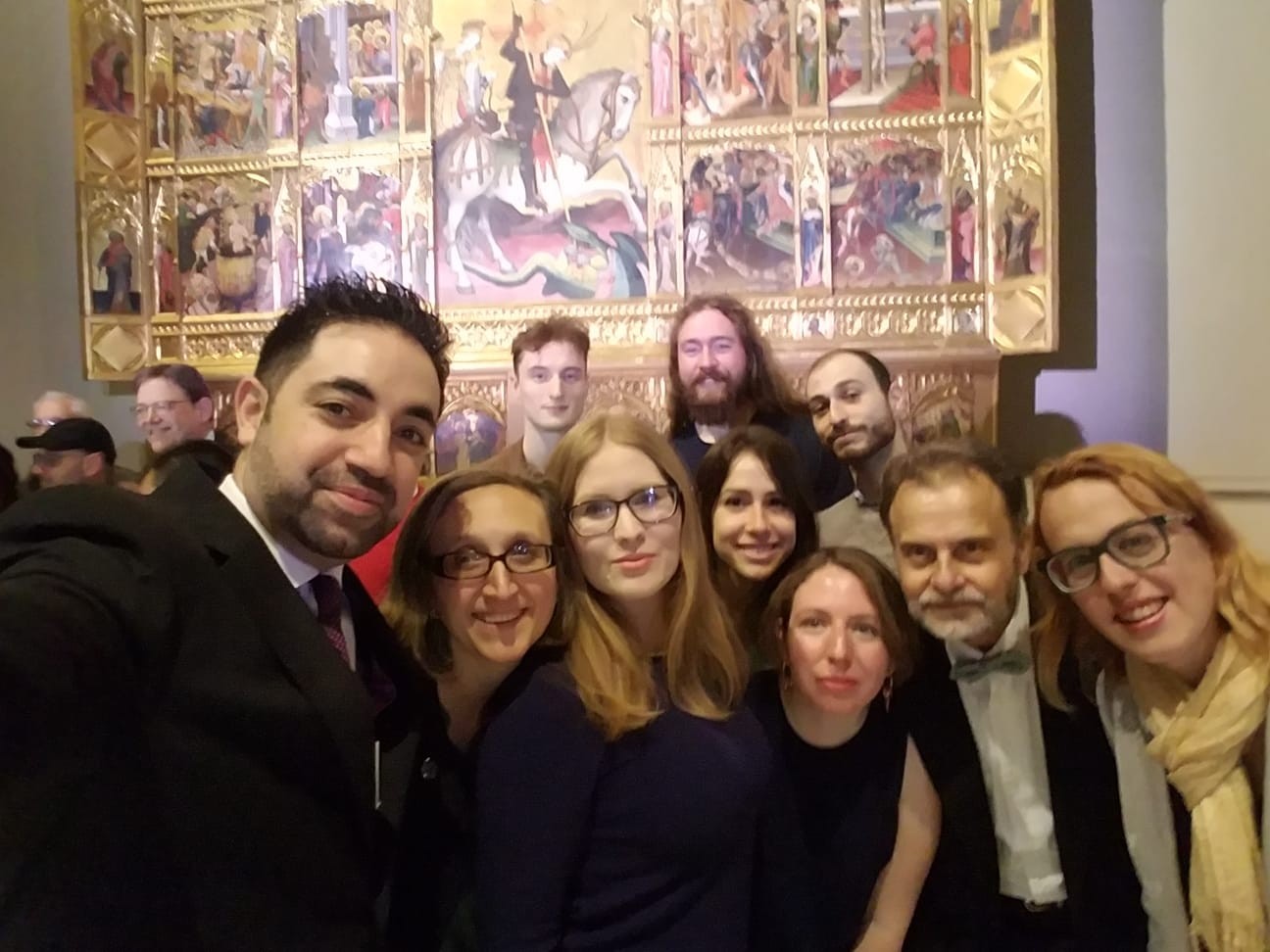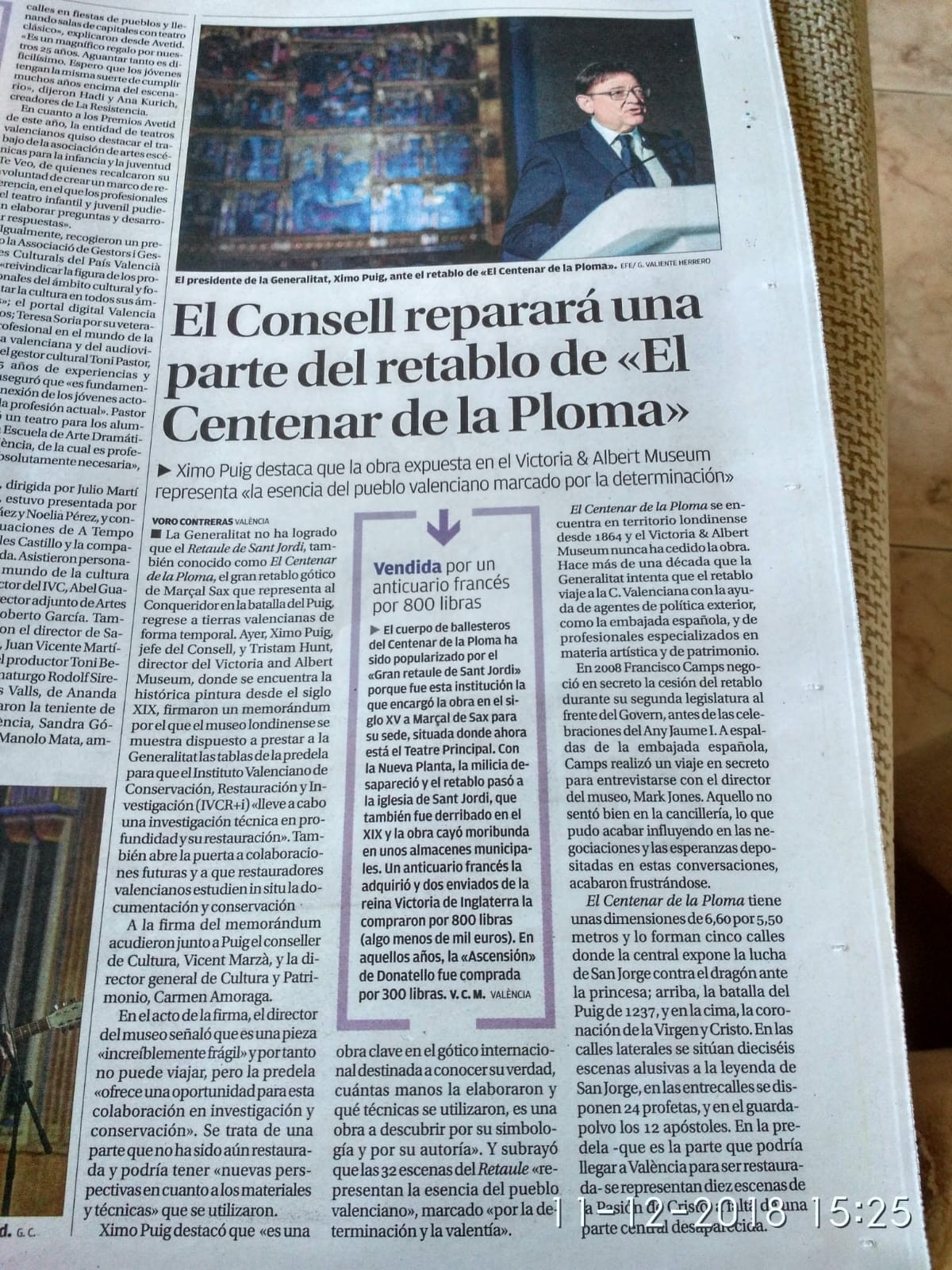600 anys de la Generalitat Valenciana al Victoria & Albert

Enguany (2018) fa 600 anys de la creació de la Generalitat Valenciana, la institució que, nascuda inicialment amb una finalitat fiscal i financera, acabaria ostentant la més alta representació política del regne. En realitat, i com les seues homòlogues catalana i aragonesa, la Generalitat del regne de València havia estat creada molt abans, en el context de la llarga guerra amb Castella durant la segona meitat del segle XIV, quan es va fer necessari un important esforç econòmic per a fer front a l’enorme volum de la despesa bèl·lica. Però no va ser fins 1418, amb Alfons el Magnànim, que la nova institució es va desenvolupar plenament i començà a funcionar amb normalitat. La Generalitat, dita inicialment Diputació del General, era una comissió permanent de les Corts, és a dir, una “diputació”, que representava el conjunt —el “general” o “generalitat”— dels habitants del regne de València.
El pactisme propi dels estats de la Corona d’Aragó i la mateixa existència d’una institució representativa del regne, i autònoma respecte dels oficials reials, no eren una peculiaritat exclusiva de la monarquia catalanoaragonesa, sinó que es desenvoluparen també en altres països d’Europa occidental, on són coneguts amb altres noms. A la consolidació de la Generalitat també va contribuir l’emissió de deute públic, el primer deute sobirà o estatal a Europa, els interessos del qual es pagaven amb els ingressos fiscals recaptats per la institució, que esdevingueren així permanents i regulars. Amb el temps, la Generalitat aniria assumint també funcions polítiques, encara que a l’edat moderna hagué de compartir la representació del regne amb una altra institució, els Elets dels Tres Estaments.
La Generalitat, com la resta de les institucions del regne de València, va ser abolida el 1707 pel decret de Nova Planta promulgat per Felip V, en el marc de la Guerra de Successió, que substituïa l’ordenament foral per les lleis i institucions castellanes, amb una visió de l’estat i del poder de la monarquia més centralista i absolutista. Als segles XIX i XX, l’antiga Generalitat va esdevenir objecte, primer, d’evocació nostàlgica per part dels erudits i escriptors de la Renaixença i, més tard, de reivindicació per part del valencianisme polític. Amb la transició democràtica i l’aprovació de l’Estatut d’Autonomia de 1982, el nom de Generalitat passà a designar el conjunt de les institucions de l’autogovern valencià, des del Consell i les Corts a tot un seguit d’institucions consultives i normatives.
Sens dubte, la celebració del 600 aniversari de la seua creació servirà per a un millor coneixement de la més important de les institucions valencianes, la que encarna la representació política dels valencians i l’administració de l’autogovern, i també de la història valenciana en general. Aquest és, entre altres de més acadèmics i historiogràfics, l’objectiu d’aquest congrés internacional que reuneix historiadors de diferents països, especialitzats en els grans temes que s’hi abordaran: Estat, finances, fiscalitat, deute públic, pensament polític, cultura, art...



